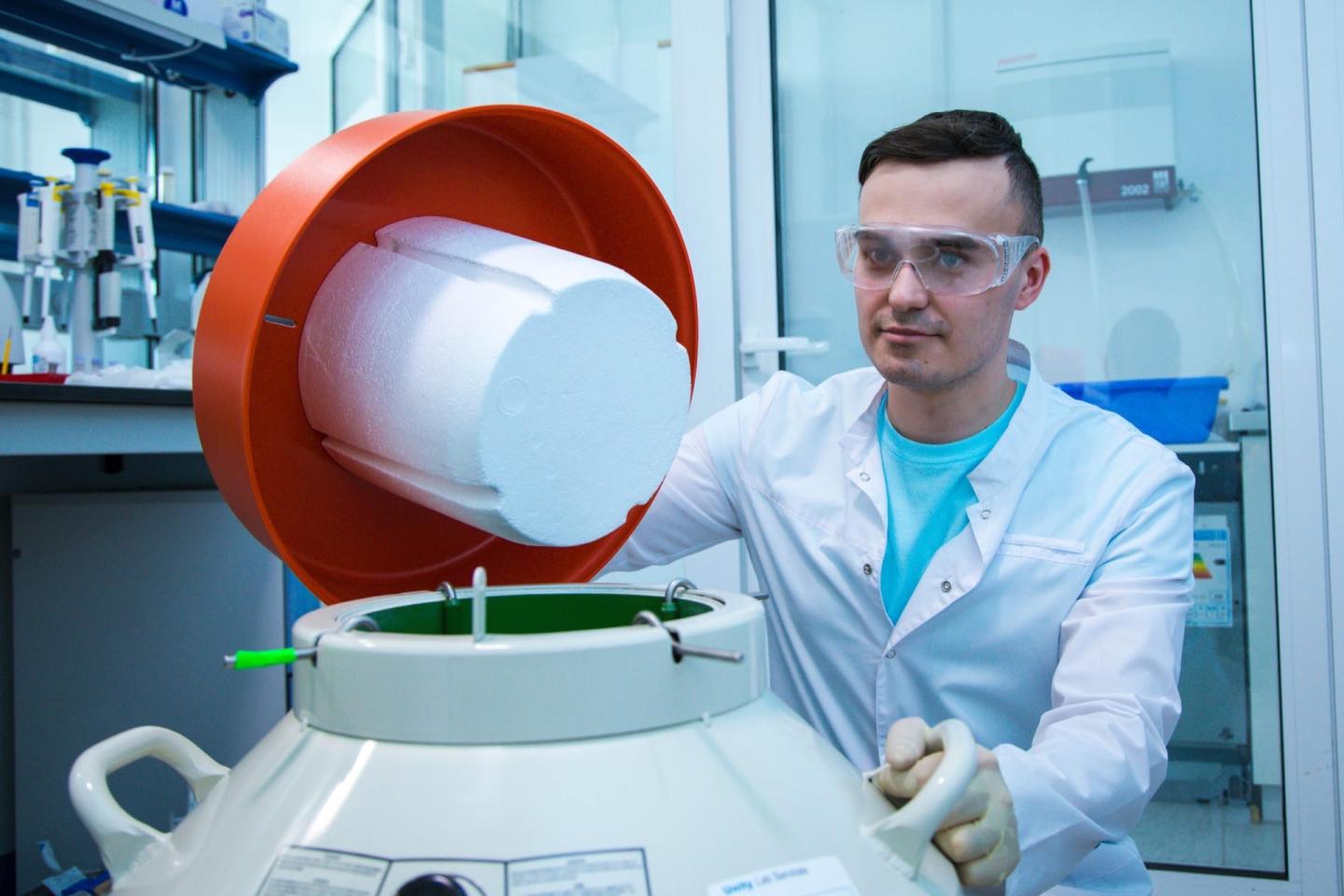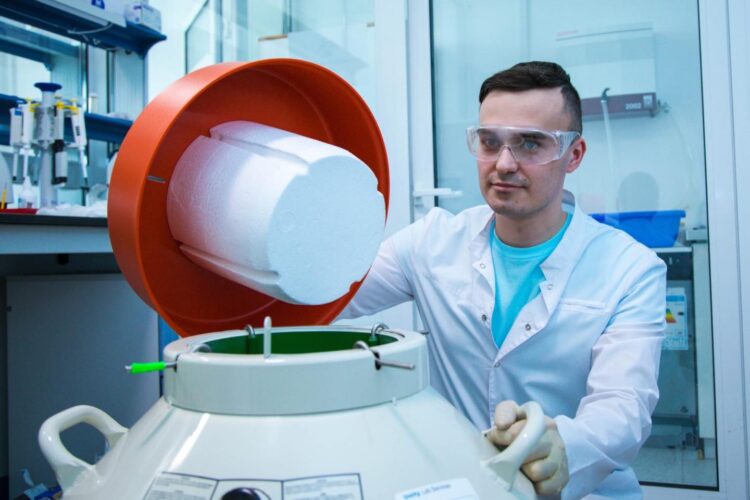In the authors’ opinion, this research will help to treat oncology

Credit: Immanuel Kant Baltic Federal University
Scientists from the Immanuel Kant Baltic Federal University (IKBFU) and National University of Science and Technology “MISiS” have studied how magnet nanoparticles affect cancer cells in the human liver. In the authors’ opinion, this research will help to treat oncology. The research results were published in the “Nano Convergence” Scientific Journal.
Because of their unique properties, magnetic nanoparticles can be used for therapeutic diagnostics and personalized treatment of cancer diseases, as well as be an effective contrast agent for MRI examination and imaging of tumors.
It is known that human cancer cells can absorb magnetic nanoparticles. This property can be used in cancer therapy in at least three ways: local heating of a tumor when exposed to a variable magnetic field (magnetic hyperthermia), targeted drug delivery, or selective cytotoxic effects of nanoparticles on cancer cells.
Scientists from the IKBFU Laboratory of Novel Magnet Materials studied the peculiarities of nanoparticles’ influence on cell organelles and got acquainted with the peculiarities of intracellular processes in detail by using different lines of liver cancer cells. Small objects such as nanoparticles can be easily “eaten” by cells, but this does not always happen – in some cases, nanoparticles can damage the structure of a cell, penetrate it and kill it. By adding iron oxide nanoparticles of various shapes to the nutrient medium of cells, scientists were able to check the degree and nature of the changes in cell culture.
According to the authors of the study, the behavior of cancer cells depends on the concentration of nanoparticles in the solution and, most importantly, the type of cancer. The fact is that different cells respond differently to the same particles. This makes it possible to create an instrument based on nanoparticles, selectively suppressing cancer cells while keeping healthy cells intact.
Scientists have carried out experiments on how cancer cells in the human liver react to various types of magnet nanoparticles. They found that iron oxide nanocubes and nanoclusters are capable of activating certain genes that give a “self-destruct command” to liver cancer cells. This discovery sheds light on the mechanisms that regulate cell death caused by the cytotoxicity of nanoparticles.
Maxim Abakumov, co-author of the research, head of NUST “MISiS” Biomedical materials Laboratory said:
“The mechanism of toxic effect is associated with the progressive permeability of lysosomal membranes in hepatocytes, which provokes the processes of apoptosis and autophagy, basically, “cell death”.
According to Valeria Rodionova, the Head of the IKBFU Novel Magnet Materials Laboratory, the results of the research may be used for cancer diagnosis and therapy.
Valeria Rodionova told to RIA Novosti:
“This interdisciplinary project brought together scientists from different fields: physics, chemists, and biologists. Our joint work allowed us not only to synthesize unique types of nanoparticles but also to analyze the mechanisms of specific cellular signaling pathways that they activate in the cell”.
Cooperation in the scientific world often proves to be decisive in research. Thus, microscopic studies were carried out in the laboratory of biophysics, under the supervision of Dr. Oleg Lunov, head of the laboratory (Institute of Physics of the Czech Academy of Sciences). Scientists of the Mendeleev Russian University of Chemistry and Technology also took part in the study.
###
Media Contact
Denis Zhigulin
[email protected]
Original Source
https:/
Related Journal Article
http://dx.





